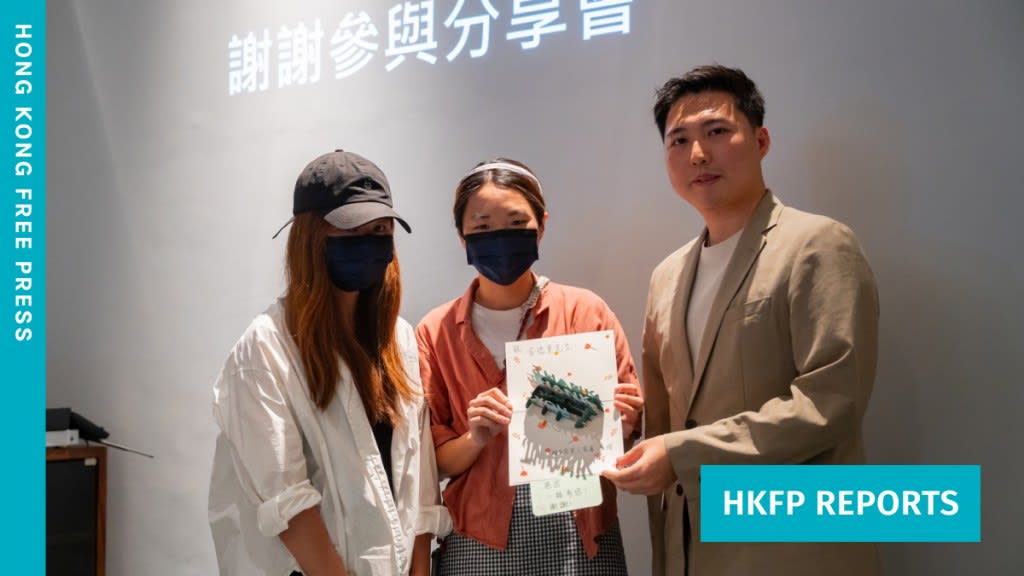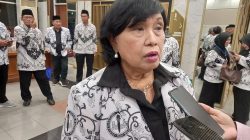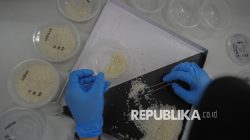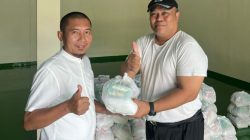The Struggle of Hong Kong Victims Trapped in Myanmar Scam Farms
Wearing dark blue medical masks, Wendy and her younger sister stood before an audience at a book launch. Their faces were hidden, as they feared that revealing their identities could put others still trapped in Myanmar’s scam farms in danger. Wendy’s sister, known only by the pseudonym “Luncheon Meat,” was trafficked across the Thai border into Myanmar last summer after accepting a purchasing agent job in Thailand.
Upon arriving in Chiang Mai, recruiters took her identity documents and transported her into Myanmar. Soon after, she was forced to engage in investment scams targeting wealthy American men. Her story is one of many that have been brought to light in a new book titled No Way Out: Modern Slavery Behind the Scam Curtain, written by former opposition district councillor Andy Yu and social worker Frank Fung.
The book chronicles the experiences of Hongkongers who have been trafficked to Myanmar’s notorious “scam factories.” It includes interviews with victims and their families, highlighting the challenges they face in trying to bring their loved ones home. Yu was approached by the Hong Kong Economic Journal to write the book after supporting several victims’ families through their ordeal.
A Family’s Long Fight for Freedom
One chapter of the book is told from Wendy’s perspective, detailing the seven months it took to rescue her sister. From the moment she accepted the fake job offer to enduring the harsh conditions in the scam farms, the family worked tirelessly to bring her home. Eventually, her sister was released in March after a series of rescue efforts.
Wendy expressed deep regret over things she felt she did too late or not enough. She described how her entire family remained on high alert 24 hours a day, fearing they might miss any messages from her sister. Keeping track of her whereabouts was also difficult, as she was moved between multiple compounds that had rapidly expanded due to the ongoing civil war in Myanmar.
Since the military coup in February 2021, which ousted the democratically elected government of Aung San Suu Kyi, human trafficking has surged alongside other forms of transnational crime. Scam compounds have proliferated along Myanmar’s southern border, making it increasingly dangerous for those seeking to escape.
The Dilemma of Ransom and Rescue
After Luncheon Meat was found texting her family over WhatsApp, her captors demanded a $500,000 ransom for her release. However, her family could not afford such a sum, and there was no guarantee that the captors would honor their promise. Wendy recalled the dilemma of whether to pay the ransom, knowing it could lead to further exploitation.
She also sought help from vigilante groups on Chinese social media, which she suspected had ties to the scam syndicates. Some offered to rescue people under a “two in, one out” agreement — a condition that required Wendy to bring two more people into the scam farms for her sister’s release. This left her questioning whether she had done too much or not enough.
Wendy faced a difficult choice about what to reveal to the press. She worried that sharing details about the victims could put them in even more danger if the crime syndicates recognized them from news reports.
A New Hope for Victims
Wendy’s sister was eventually rescued following the successful operation that freed mainland Chinese actor Wang Xing, who had gone missing along the Thai-Myanmar border. This event showed that Chinese authorities had leverage over the military-affiliated ethnic armed groups controlling the scam farms in Myanmar.
Just days after Wang’s rescue, Hong Kong sent a task force to assist in joint operations with Thai authorities and the Chinese embassy. Over the next three months, the victims were gradually released. As of mid-March, three Hong Kong residents were still waiting to be rescued.
A Cautionary Tale for Young People
Yu, who will give a talk on the book at the Hong Kong Book Fair later this month, hopes the victims’ stories will serve as a warning, especially for young people facing economic hardship. He believes that telling the true stories of the victims is a more effective way to educate the public against scammers than simply advising people to avoid them.
Yu also criticized the lack of specific human trafficking laws in Hong Kong. Instead, those prosecuted are usually charged with fraud, a lesser offense. He has informed Undersecretary for Security Michael Cheuk about the book’s publication, while acknowledging concerns from officials about commenting publicly on the issue.
Fung, his co-author, believes the book can help young Hongkongers stay vigilant against job scams. He also called on the government to improve anti-fraud education, suggesting that the book could be placed in school libraries.
A Call for Empathy and Awareness
In the preface, the authors defended the victims and their families against victim-blaming attitudes. They emphasized that blaming victims for their suffering only causes further harm and discourages them from speaking out.
They noted that almost all the interviewees admitted they had made mistakes, but that does not justify the physical and mental torture they endured. The book aims to raise awareness and encourage empathy, ensuring that the voices of the victims are heard and understood.







